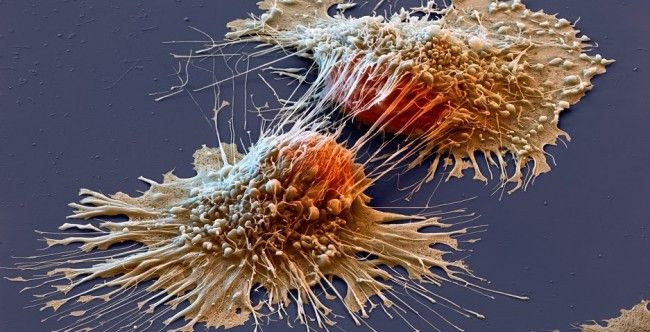Abraxane FDA Approved For Treatment In Late-Stage Pancreatic Cancer Treatment

The U.S. Food And Drug Administration (FDA) has approved Abraxane to treat patients with late-stage pancreatic cancer that has spread to other parts of the body. In 2005 Abraxane was first approved to treat breast cancer, and is also now approved for non-small cell lung cancer.
Manufactured by biopharmaceutical company Celgene Corporation, the drug's trials have shown that patients with metastasized pancreatic cancer had a significantly higher survival rate when they were treated with Abraxane. This chemotherapy drug can slow the growth of certain tumors when used with gemcitabine, another chemotherapy drug.
“Patients with pancreatic cancer are often diagnosed after the cancer has advanced and cannot be surgically removed,” said Dr. Richard Pazdur, director of the Office of Hematology and Oncology Products in the FDA’s Center for Drug Evaluation and Research. “In these situations, and in situations when the cancer has progressed following surgery, options like Abraxane can help prolong a patient’s life.”
A clinical trial was used to determine the safety and effectiveness of Abraxane using 861 participants. Participants were randomly assigned to two groups, one receiving Abraxane plus gemcitabine and another group receiving gemcitabine alone. Patients who were treated with the Abraxane plus gemcitabine lived on average 1.8 months longer than patients who were treated with gemcitabine only. Researchers also noted a delay in tumor growth when the two chemotherapy drugs were combined.
In 2013 alone, pancreatic cancer has claimed 38,460 lives in the U.S.; 19,480 men and 18,980 women.
Risk factors include a combination of age, gender, and lifestyle. The majority of patients diagnosesd with pancreatic cancer are older than 45, with an average age of 71 at the time of diagnosis. Men are also 30 percent more likely to develop pancreatic cancer than women. Black Americans have a higher chance of developing this form of cancer compared to white Americans. Obesity, smoking, and alcohol use increase the chances of developing pancreatic cancer, as with other cancers.
Common side effects observed in Abraxane plus gemcitabine-treated participants include a decrease in white blood cells and platelets, fatigue, gastrointestinal disturbances, hair loss, tissue swelling, fever, and dehydration.
Published by Medicaldaily.com



























